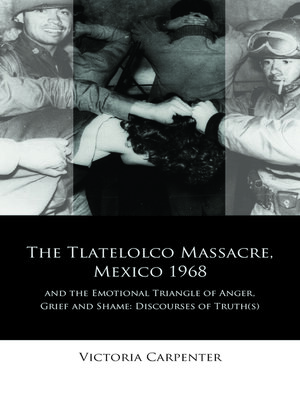The Tlatelolco Massacre, Mexico 1968, and the Emotional Triangle of Anger, Grief and Shame
ebook ∣ Discourses of Truth(s) · Iberian and Latin American Studies
By Victoria Carpenter

Sign up to save your library
With an OverDrive account, you can save your favorite libraries for at-a-glance information about availability. Find out more about OverDrive accounts.
Find this title in Libby, the library reading app by OverDrive.



Search for a digital library with this title
Title found at these libraries:
| Library Name | Distance |
|---|---|
| Loading... |
In the aftermath of major violent events that affect many, we seek to know the 'truth' of what happened. Whatever 'truth' emerges relies heavily on the extent to which any text about a given event can stir our emotions – whether such texts are official sources or the 'voice of the people', we are more inclined to believe them if their words make us feel angry, sad or ashamed. If they fail to stir emotion, however, we will often discount them even when the reported information is the same. Victoria Carpenter analyses texts by the Mexican government, media and populace published after the Tlatelolco massacre of 2 October 1968, demonstrating how there is no strict division between their accounts of what happened and that, in fact, different sides in the conflict used similar and sometimes the same images and language to rouse emotions in the reader.







